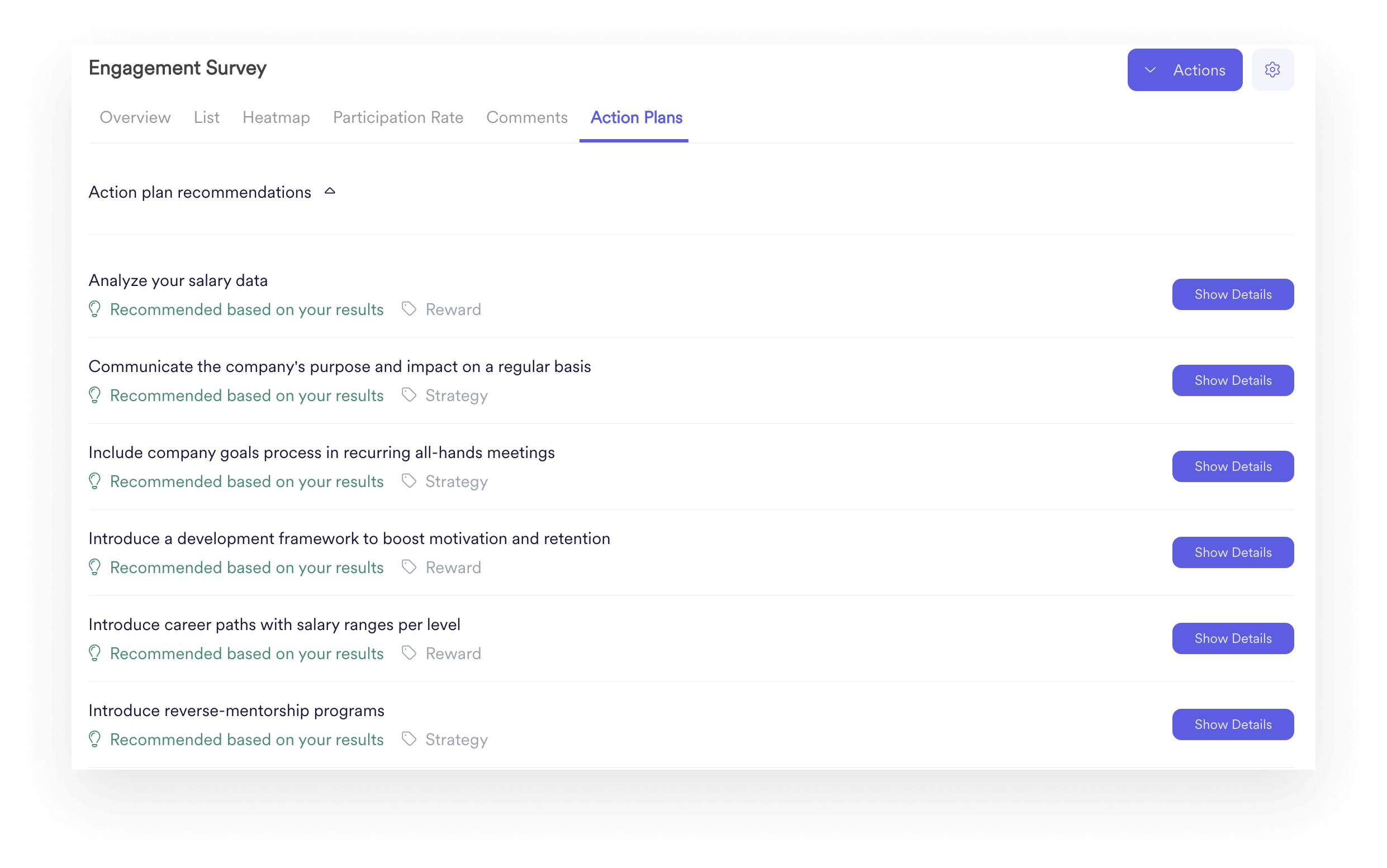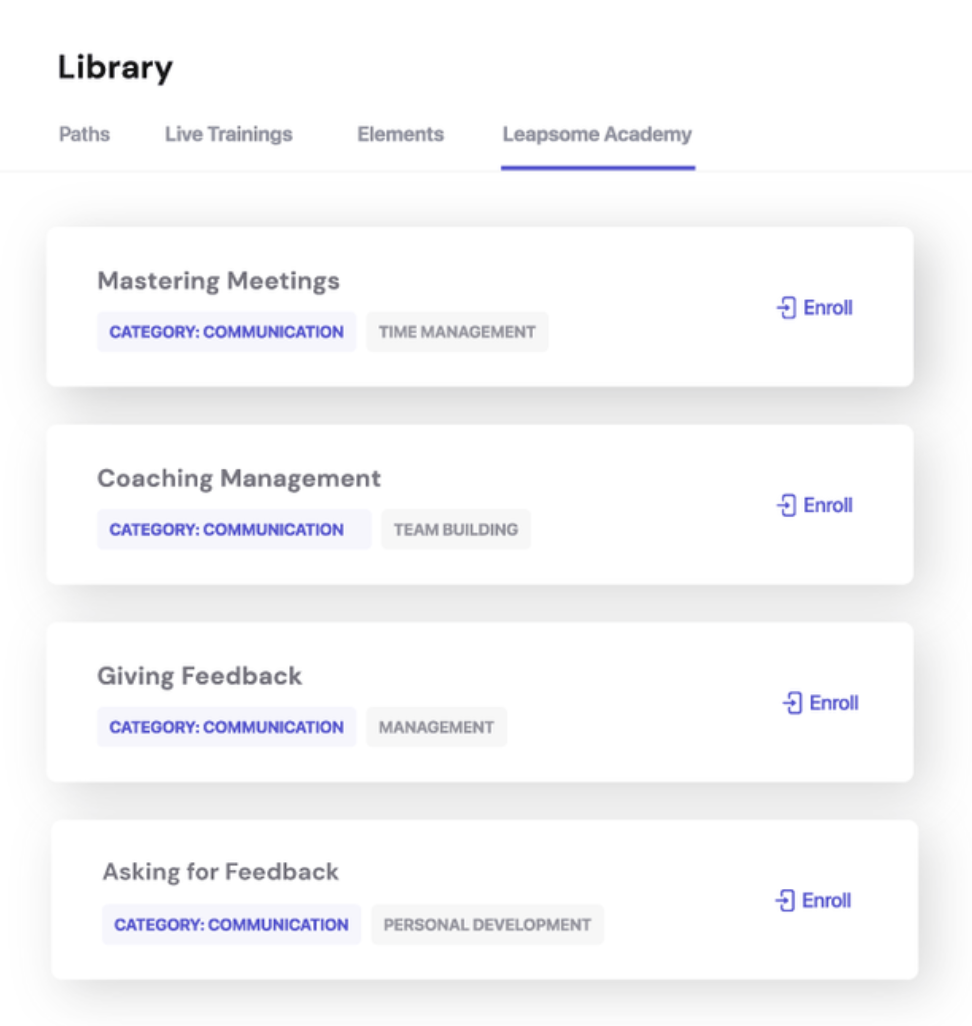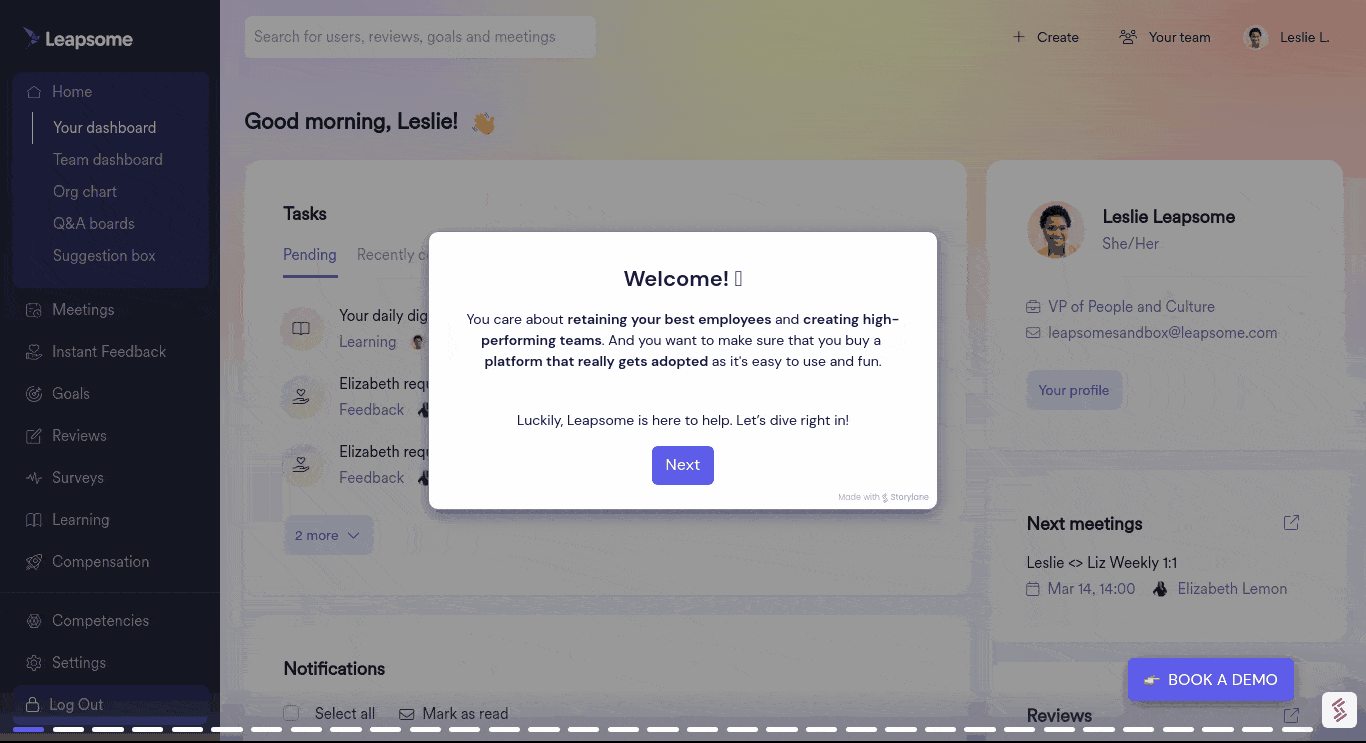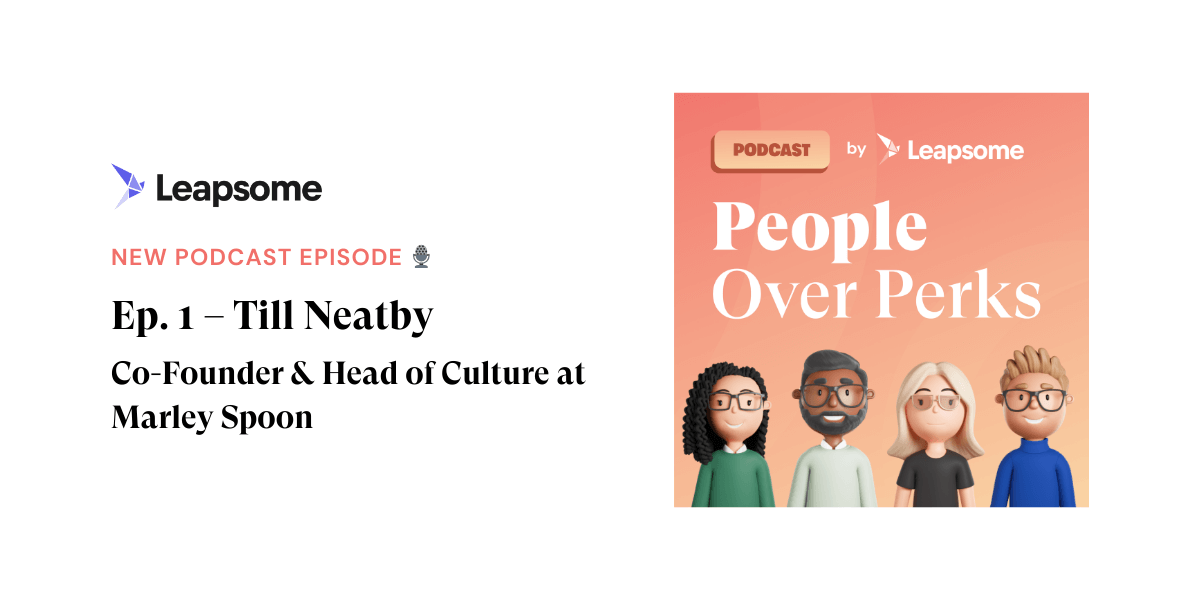Employee document management: best practices for success

Research shows that over half of office professionals spend more time searching for files they need than responding to messages and emails.* In fact, 47% of employees say their company’s digital organization system is hard to use, and almost a third of Gen Z workers have considered leaving a job due to poor digital organization.**
For HR professionals, these challenges are magnified. People ops teams have to manage vast amounts of information, from recruitment records and performance reviews to payroll information and compliance documents — all while making sure the right files are accessible to employees.
Great employee document management isn’t just about keeping files in order; it’s about making HR work easier, faster, and more effective. When People teams can store, organize, and access documents efficiently, it paves the way for happier team members who can spend their time doing impactful work.
Our guide will give you everything you need to know to implement a top-notch document management system. We’ll cover the importance of employee document management, how to choose the right document management platform, and best practices to get the most from your chosen tools.
* Wakefield Research/Elastic, 2020
** Adobe, 2023
📄 Improve productivity with effective document management
Leapsome’s HRIS can transform your workflow by streamlining document organization and access.
👉 Join the waitlist
Employee document management is the practice of storing and organizing essential employee and HR data and files. This includes basic staff information, onboarding paperwork, payroll data, performance reviews, team feedback, and company policies.
Many HR departments have moved away from paper-based systems and filing cabinets, opting for secure digital document management solutions that offer instant access, integrated information flows, and analytics.
Without effective systems for managing employee data and documents, companies risk:
- Decreased productivity, as workers waste time searching for essential files
- Data security vulnerabilities, including theft or loss of critical documents
- Disorganized HR processes that hinder efficiency
- Missed opportunities to leverage document data to improve workplace practices
On the flip side, a strong employee document management system offers several advantages, including:
- Enhanced security through access controls that protect sensitive information
- Increased productivity as documents are easier and faster to find
- Simplified data requests and processes with features like e-signatures, streamlined approvals, and automated categorization
- Compliance with local and industry regulations
- Self-service employee access to files, improving their experience and reducing the load on HR
- Strategic decision-making based on data from performance reviews, employee feedback, payroll reports, and more
5 best practices for your employee document management system
Creating a robust employee document management system requires a comprehensive approach that streamlines processes, ensures compliance, and enhances the employee experience. You’ll need the right software and procedures in place to securely store, organize, and access key information.
1. Define your document management strategy
Your document management strategy should be a living document that evolves with your organization’s needs.
Make sure to outline:
- Types of employee data to store, covering all categories of records and information you need to maintain
- Document import protocols with defined processes for importing and saving files. A standardized naming convention can ensure consistency and easy retrieval.
- Access permissions for team members, determining which files employees can access and which should be restricted to HR
- Automation opportunities to streamline importing, storing, and managing documents, improving efficiency
- Security and compliance measures, including data protection protocols and best practices to prevent unauthorized access or breaches
2. Keep your data accurate and consistent
Accurate records are vital for effective document management. Standardizing how data is stored and ensuring files are up to date helps reduce errors and miscommunication.
Set up HR processes to regularly verify data accuracy and relevance. For example, set up reminders for employees to review and update their personal information or request biannual updates for contractor records to ensure they are current.
Consistent document types and formats, including company-wide templates, also make it easier for HR teams and employees to find the information they need.
3. Ensure compliance with data protection regulations and strong security measures
Your organization's data protection strategy must align with applicable local and industry-specific regulations that govern how you collect, use, and store employee data.
For instance, the European Union’s General Data Protection Regulation (GDPR) requires explicit consent to collect personal data, while the United States’ California Consumer Privacy Act (CCPA) governs California residents’ rights over sensitive, personally identifiable information (or “sensitive PII”) like bank account numbers, identification details, and medical records.
Leapsome’s HRIS compliance features can help with protecting sensitive data and navigating this complex regulatory landscape. With multilevel approval workflows, customizable access permissions, and robust data protection protocols, our upcoming HRIS supports compliance while improving the employee experience.
4. Use document analytics for strategic people insights
Employee documents hold valuable insights for strategic HR decisions.
For example, you can track:
- Employee participation in learning and development programs
- Completion rates for company training
- Churn, retention, and absenteeism trends
- Factors influencing retention, including data from employee surveys and exit interviews
Leapsome’s HRIS software includes advanced people analytics to help you monitor and gain insights from your data. By examining key employee metrics over time and across different teams, you can identify patterns and potential issues before they escalate. For instance, you might forecast future skill gaps or predict which high-performing employees are at risk of leaving by analyzing engagement and performance review data.
5. Digitize documents effectively
Although many employee documents are now automatically digital (or “digital-born”), some files may still come to your team in classic pen-and-paper format. When this happens, you need an efficient system to digitize documents. This usually involves scanning or manually inputting the data into digital forms.
Once digitized, it's equally important to have a secure process for shredding and disposing of the original paper version so you don’t have unnecessary copies of personal information.
What to look for in your HR document management software
When choosing an employee document management solution, look for a platform that meets your company’s specific needs. Most organizations want to prioritize ease of use, seamless data import, and integrations with other people enablement data, so those are a few key criteria to keep in mind during your research.
Here’s what to consider when you’re weighing up the options:
Choose an all-in-one tool
Standalone document management solutions can be limiting, preventing you from maximizing the potential of your employee data.
An all-in-one system like Leapsome’s upcoming HRIS will help you unify and integrate your HR data into a single platform. You can easily maintain accurate employee profiles, manage contracts, bulk import documents, and manage large data sets; this approach allows you to access and analyze people data, uncovering trends in employee engagement, performance, retention, and skill gaps.
Ease of use
The right HRIS solution for your company should be intuitive for day-to-day users. Look for options with easy form filling and document uploads, a clear dashboard, customization features, and simple-to-create workflows.
To maximize ease of use, you’ll also want to make sure your tool has fast, responsive customer support.
Comprehensive document organization
You want to choose a document management solution that allows you to store, access, and evaluate all of your essential employee data.
Make sure your software is equipped to handle all the following information types:
Time tracking and attendance
Tracking hours worked, absenteeism, time-off requests, medical leave, and accrued vacation time to ensure compliance with local regulations, maintain accurate payroll records, and identify potential issues.
Payroll documentation
Your ideal solution should let you easily store, track, review, and approve essential payroll documents, including financial details, payslips, overtime requests, and taxes paid through payroll. This will help you maintain compliance with tax regulations and support you with fair and transparent compensation management.
Employee surveys
Collecting and analyzing employee survey data, including anonymous surveys and exit interviews, is vital for gauging employee sentiment and identifying areas for improvement to enhance employee satisfaction and retention.
Leapsome’s Surveys module helps you create, distribute, and generate actionable insights from employee questionnaires. With AI-powered features, you can distill lengthy responses into clear takeaways — empowering you to address the factors influencing employee happiness and success.

Employee performance management
Tracking and managing employee performance with an effective tool gives you a comprehensive view of progress and contributions at employee, team, and company levels.
Ensure your solution supports digital document management for performance reviews and employee competency frameworks. HR platforms like Leapsome even leverage AI to help make the assessment process even smoother and more efficient — for example, by speeding up writing evaluations and extracting key insights from reviews.
Feedback
Strong feedback systems can help you build a culture of continuous improvement and recognition. Leapsome’s Feedback tools make it easy for team members to share on-the-spot feedback privately or publicly celebrate wins.
Managers can also check their past feedback to reports from 1:1s and performance reviews to monitor patterns and stay focused on development.
Learning and development records
Tracking employee training is key for identifying skill gaps, personalizing programs, and creating a culture of continuous learning and development.
Leapsome’s learning tools help you develop learning paths, provide on-demand leadership courses, and leverage AI to enrich the learning experience.

Employee information and onboarding paperwork
A great document management platform gives you a one-stop, centralized repository of onboarding paperwork, contact information, incident reports, and application materials.
Specifically, you’ll need to make sure your system can securely store onboarding paperwork, including signed contracts, contact and next-of-kin information, and associated accessibility requests or solutions.
Compliance management and advanced security features
An effective document management system must prioritize data security and regulatory compliance.
Look for these key features:
- Compliance workflows and automation
- Access control with customized permissions
- Two-factor authentication
- Data encryption
Our HRIS software has advanced security and data protection features, including multilevel approvals for accessing or changing sensitive data. Have a look at Leapsome’s security measures and certifications to see just how seriously we take data protection and compliance.
Secure and flexible contract access
A modern HRIS should provide employees with secure access to their contracts and related documents.
Leapsome’s HRIS allows team members to upload and view documents, as well as to safely sign contracts electronically.
You can also adjust access permissions to balance employee needs with data protection and legal requirements, making your processes both safe and user-friendly.
Create company-wide change with employee documentation management
Improved employee document management enhances the employee experience and supports organizational goals and compliance.
Leapsome’s end-to-end HRIS solution streamlines the collection, storage, and analysis of employee documentation.
With secure, easy access to critical data, HR teams can operate more efficiently and make data-driven decisions that improve retention and performance.
📄 Get the most from your employee documentation with Leapsome
Learn how Leapsome’s integrated platform and HRIS can centralize documents and elevate your workforce processes.
👉 Take a product tour
Ready to upgrade your people enablement strategy?
Explore our performance reviews, goals & OKRs, engagement surveys, onboarding and more.
.webp)
.webp)
 Request a Demo Today
Request a Demo Today






.png)

















